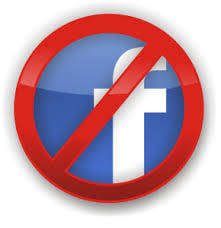Doctors’ practices are increasingly trying to reach their patients online. But don’t expect your doctor to “friend” you on Facebook – at least, not just yet.
Physicians generally draw a line: Public professional pages – focused on medicine, similar to those other businesses offer – are catching on. Some might email with patients. But doctors aren’t ready to share vacation photos and other more intimate details with patients, or even to advise them on medication or treatment options via private chats. They’re hesitant to blur the lines between personal lives and professional work and nervous about the privacy issues that could arise in discussing specific medical concerns on most Internet platforms. 
Some of that may eventually change. One group, the American College of Obstetricians and Gynecologists, broke new ground this year in its latest social media guidelines. It declined to advise members against becoming Facebook friends, instead leaving it to physicians to decide.
“If the physician or health care provider trusts the relationships enough … we didn’t feel like it was appropriate to really try to outlaw that,” said Nathaniel DeNicola, an ob-gyn and clinical associate at the University of Pennsylvania, who helped write the ACOG guidelines.
But even the use of these professional pages raises questions: How secure are these forums for talking about often sensitive health information? When does using one complicate the doctor-patient relationship? Where should boundaries be drawn?
For patients, connecting with a physician’s office or group practice on Facebook can be a simple way to keep up with basic health news. It’s not unlike following a favorite sports team, your child’s middle school or the local grocery store.
One Texas-based obstetrics and gynecology practice, for instance, uses a public Facebook page to share tips about pregnancy and childcare, with posts ranging from suggestions on how to stay cool in the summer to new research on effective exercise for post-birth weight gain. Practices have also been known to share healthy recipes, medical research news, and scheduling details for the flu shot season.
“I have people come up to me and say, ‘I follow you on Facebook — thank you for posting this particular article. It helped me and my husband and my family,'” said Lisa Shaver, a primary care physician based in Portland, Ore.
But unless they’re already friends, she won’t add patients to her personal account — where, she said, she posts less health information and more cat videos.
Historically, professional groups including the American College of Physicians and American Academy of Family Physicians have advised against communicating through personal Facebook pages. The American Medical Association notes social media can be a valuable way to spread health information, but urged doctors in its 2010 guidelines to separate their personal and professional online identities to “maintain professional boundaries.”
Finding ways to use Facebook and other forms of social media to connect with patients — even if it may just be through professional pages — fits a trend in which patients seek more equal footing with their doctors, said Zack Berger, an assistant professor of medicine at the Johns Hopkins School of Medicine who studies patient-doctor relationships and social media. It also follows what James Colbert, a hospitalist at Massachusetts-based Newton Wellesley Hospital, described as the growing consumer approach to medicine — including the notion that patients should be able to reach their physicians at all hours. Colbert is also an instructor at Harvard Medical School who researches how patients want to fit social technology into their health care.
Email can be particularly convenient method, though it isn’t without concerns. Eva Schweber, 44, emails her doctor from a personal account and sends messages through an online portal — a more digitally secure system that is being adopted by a growing number of practices. The portal, she said, is for discussing complex, specific information. She’ll email her doctor from her personal email for less private concerns: scheduling, filling prescriptions and asking if certain symptoms might warrant a check-up.
“The unsecure email is easier, in that I can do it from my phone, my tablet, whatever,” said Schweber, of Portland, Ore.
In a recent study published in the Journal of General Internal Medicine, almost 20 percent of patient respondents reported trying to contact doctors through Facebook, and almost 40 percent through email. “Patients want to communicate with doctors [in whatever way] is convenient,” said Joy Lee, a postdoctoral research fellow at the Johns Hopkins Bloomberg School of Public Health, and the study’s lead author.
Doctors don’t yet seem to share that enthusiasm, Colbert said.
Article continues: Read More
Source:
August 24, 2015
Shefali Luthra – KHN Staff Writer
Kaiser Health News
- 1.800.759.1321
- Atlanta, GA & Phoenix, AZ
- [email protected]
